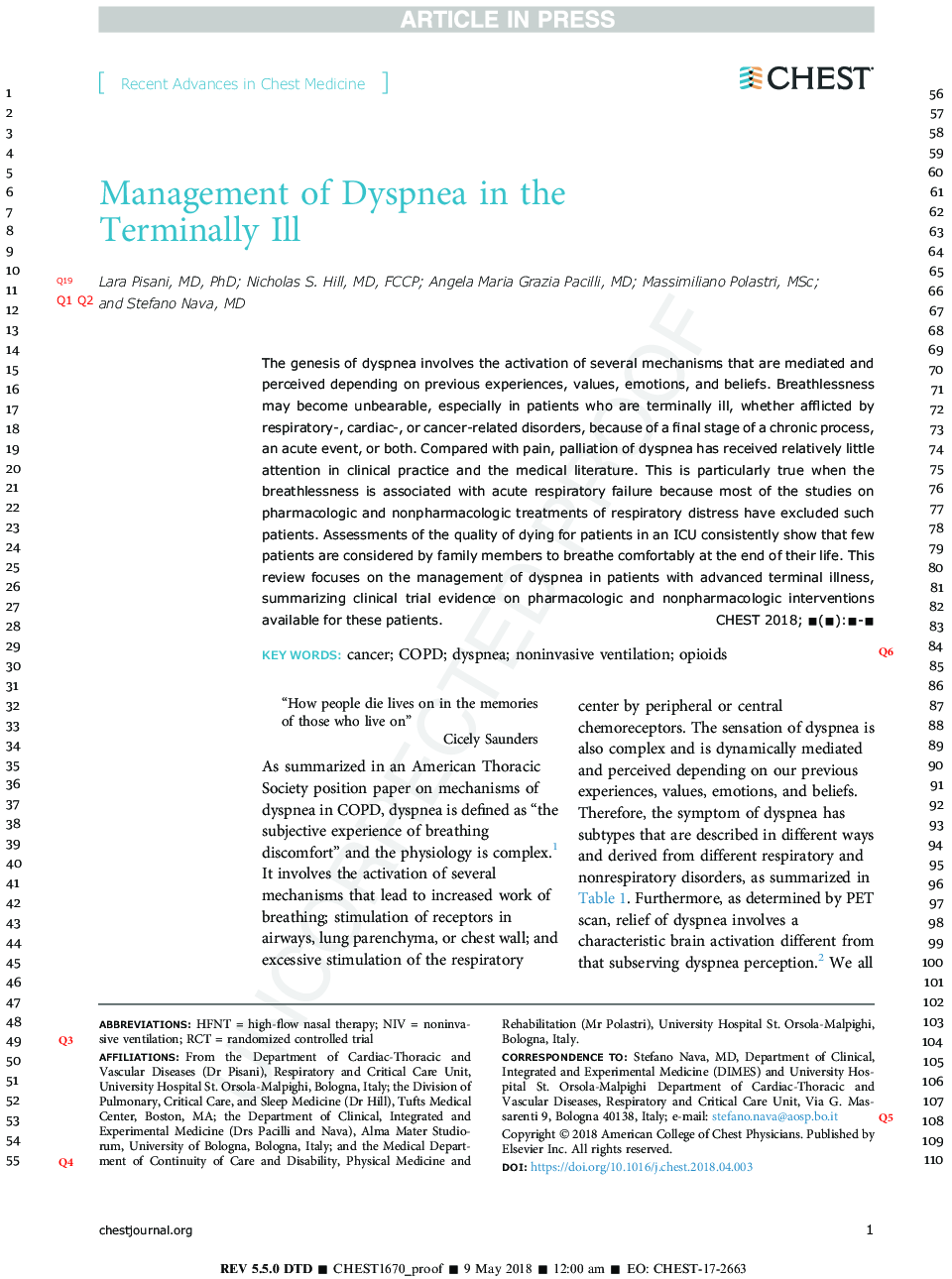| Article ID | Journal | Published Year | Pages | File Type |
|---|---|---|---|---|
| 11015117 | Chest | 2018 | 10 Pages |
Abstract
The genesis of dyspnea involves the activation of several mechanisms that are mediated and perceived depending on previous experiences, values, emotions, and beliefs. Breathlessness may become unbearable, especially in patients who are terminally ill, whether afflicted by respiratory-, cardiac-, or cancer-related disorders, because of a final stage of a chronic process, an acute event, or both. Compared with pain, palliation of dyspnea has received relatively little attention in clinical practice and the medical literature. This is particularly true when the breathlessness is associated with acute respiratory failure because most of the studies on pharmacologic and nonpharmacologic treatments of respiratory distress have excluded such patients. Assessments of the quality of dying for patients in an ICU consistently show that few patients are considered by family members to breathe comfortably at the end of their life. This review focuses on the management of dyspnea in patients with advanced terminal illness, summarizing clinical trial evidence on pharmacologic and nonpharmacologic interventions available for these patients.
Related Topics
Health Sciences
Medicine and Dentistry
Cardiology and Cardiovascular Medicine
Authors
Lara MD, PhD, Nicholas S. MD, FCCP, Angela Maria Grazia MD, Massimiliano MSc, Stefano MD,
